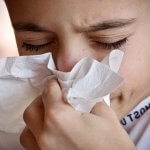We believe in professional growth of Physiotherapists with high technology!
The Science behind Stress!

“Stress is like spice – in the right proportion it enhances the flavor of a dish. Too little produces a bland, dull meal; too much may choke you.” – Donald Tubesing
What is Stress?
An internal state which can be caused by physical demands on the body (disease conditions, exercise, extremes of temperature) or by environment and social situations which are evaluated as potentially harmful, uncontrollable or exceeding resources for coping.(1)
In 1936, Hans Selye, the Father of Stress, in his biological stress research proposed that stress is a nonspecific strain on the human body that causes irregularities in the normal bodily functions.
A change in environment – the fear of losing a job or a person, the uncertainty of future; leads to a sequence of events brought about by the sympathetic nervous system. A gush of hormones causes a heart to pound, muscles to tense and a body to sweat.
How exactly is this system activated? Lets find out…
Amygdala is a part of the brain that is responsible for emotional processing. On sensing stress, it sends signals to hypothalamus. The hypothalamus is the command center. The response of the body depends on activation of the Autonomic Nervous System (ANS). If the brain decides to flee away from the situation, the hypothalamus activates the Sympathetic System. However, if the brain decides to be calm, the parasympathetic system takes over the function.
In a stressful situation, the sympathetic system gets activated leading to a release of stress hormones – the adrenaline, noradrenaline and cortisols, also known as fight or flight hormones from the adrenal glands.
The Adrenaline causes numerous physiological changes that include – an increase in heart rate and blood pressure, a response to push more blood to the peripheral muscles and vital organs to obtain optimal function. To improve oxygenation, small airways in the lung open up and respiratory rate increases.
The noradrenaline are responsible to ensure maximum availability of energy. They raise the blood sugar levels and fats, thus releasing enough nutrients for the body to fight.
The Hypothalamo Pituitary Axis (HPA) plays a major role once the adrenaline levels are reduced. The cortisols are released once the HPA senses that the stress signals are still present. The Hypothalamus releases Corticotropin Releasing Hormone (CRH) which is sensed by the pituitary gland and further causes a release of Adrenocorticotropic Hormone (ACTH) which prompts the adrenal glands to initiate the release of Cortisol.

The major functions of Cortisol are:
- raising the amount of glucose in your bloodstream
- helping the brain use glucose more effectively
- raising the accessibility of substances that help with tissue repair
- restraining functions that are nonessential in a life-threatening situation
- altering immune system response
- dampening the reproductive system and growth process
- affecting parts of the brain that control fear, motivation, and mood
Once the stressful situation ends, the parasympathetic system gets activated that helps the mind and body to rest peacefully.
“It is not the stress that kills us, it is our reaction to it” – Hans Seyle
How does this happen?
The parasympathetic system is known to produce a “rest and digest” response. It chiefly releases Acetylcholine (Ach) that act on nicotinic and muscarinic receptors.
The Pre ganglionic neuron releases Acetylcholine on the ganglion, which further acts on nicotinic receptors of post ganglionic neurons. These post ganglionic neurons then release Ach on muscarinic receptors of target organ. Thus, the heart rate and blood pressure drops gradually, respiratory rate reduces and muscles become less tense.
“You cant always control what goes on outside, but you can always control what goes on inside” – Wayne Dyer
All these events are involuntary and occur within no time. The body starts planning for the response even prior to its exposure to a stressful situation.
The Missing Response Stage
“Recovery” is an important stage that has gone missing in the modern day stress paradigm. Recovery is a stage in which the body tries to replenish all the resources like Vitamin C, pantothenic acid, calcium and magnesium that have been utilized in the stress response, thus making the body ready for the next response.
Is stress important for the body?
Well yes. To protect the body from a threat or a crisis, this system gains significant importance. It also helps the body to perform better in a stressful situation, gearing it up to face the worse. The stress response of our bodies is intended to preserve life – it is the survival mechanism.
What are the different types of STRESS?
Acute Stress :
Acute stress is also known as “GOOD STRESS”. It is a normal body response that occurs for a short period of time and subsides once the stressor is removed. It can occur at any given point of time of the day. Eg: public speaking, meeting new people
Acute stress keeps our sympathetic system activated to deal with situations that might be worse in future.
Episodic Acute Stress :
This type of stress occurs in over anxious people who have frequent episodes of acute stress. It can be a habit or a result of repeated stressful situations. Eg : Nurses, Lawyers
This type of stress may have severe repercussions on the mental health of the individual.
Chronic Stress :
It occurs in individuals who are dealing with stress or stressful situations for a prolonged duration of time. It can have effects on the body leading to: (2)
- Myocardial infarction (heart attack)
- Stroke
- Psychological disorders like Anxiety, Depression
- Headaches and migraines
- Weak Immune system
- Neurodegenerative disorders like Parkinsons, Alzheimers, Dementia
What are the stages of Stress?
Dr. Hans Syle explained his stress model as General Adaptation Syndrome (GAS) stating that an event that threatens an organism’s well being, a stressor, leads to a three-stage bodily response :
Stage I : Alarm
This is the first emergency response of the body to a stress – Fight or flight. It is a prompt response brought about by sympathetic system to react to a threat or danger
Stage II : Resistance
In this stage, the body resists the effects of continuous stressors. But the response to new stressors is inhibited in this stage. The role of ACTH forms an important line of defence in this stage.
Stage III : Exhaustion
If the stressor or stressors continue beyond the body’s capacity, the resources become exhausted and the body is susceptible to disease and death.

“Give your stress wings and let it fly away.” –Terri Guillemets
To know more about strategies to deal with stress, stayed tuned for the next blog!
- Book – Introduction to Psychology by Clifford. T. Morgan – 7th Edition.
- Life Event, Stress and Illness








Very nice….
Thank you